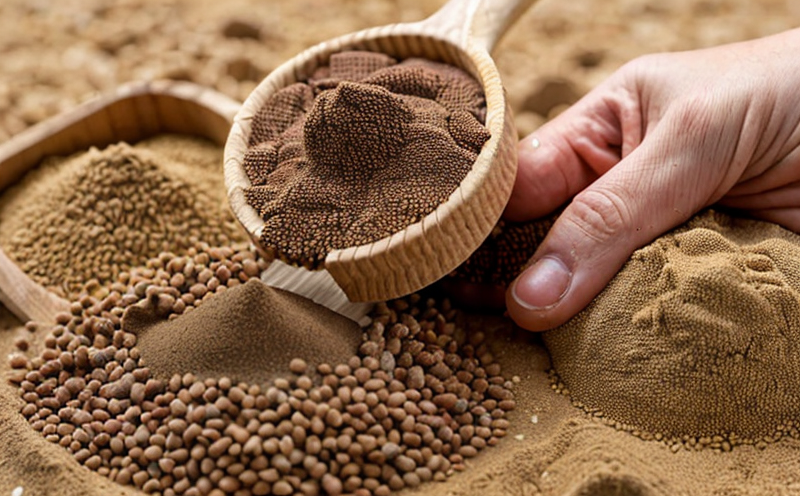GMO Ingredient Testing in Animal Feed
Genetically Modified Organism (GMO) ingredient testing is a critical component of ensuring food safety and quality within animal feed production. This service involves the analysis of ingredients used in animal feeds to identify whether they contain genetically modified organisms as defined by relevant international standards.
The primary reason for GMO testing lies in compliance with regulatory requirements, which vary globally but often mandate that food products labeled as 'non-GMO' do not include any detectable level of GMOs. This is particularly important in the animal feed industry where certain countries have strict regulations regarding the use and labeling of GM ingredients.
Our laboratory uses advanced analytical techniques such as Polymerase Chain Reaction (PCR), DNA-based methods, and other molecular biology approaches to accurately determine the presence or absence of specific GMO events. These tests are performed on a variety of raw materials including grains, seeds, oilseeds, and protein sources that are used in feed formulations.
The process begins with the receipt of samples from clients which undergo preliminary examination for quality assurance purposes. Once cleared, these samples proceed to the analysis phase where they are subjected to DNA extraction followed by PCR amplification if necessary. The amplified DNA is then sequenced and compared against known databases of GMO sequences.
Results are provided within a specified turnaround time frame depending on the complexity of the sample and volume processed at any given time. Reports include detailed information regarding detected GMO events, their concentrations, along with recommendations for compliance or corrective actions if required.
The importance of this service cannot be overstated as it directly impacts not only regulatory adherence but also consumer trust and brand reputation. By ensuring the accuracy of our testing methods, we help maintain high standards in agricultural practices that support sustainable development goals.
Industry Applications
- In compliance with international regulations requiring non-GMO labeling for certain feed products.
- To meet consumer demand for transparent and ethical sourcing of ingredients in animal feeds.
- For R&D purposes to explore new potential GM-free raw materials or formulations.
- In supporting traceability programs aimed at tracking the origin and journey of each ingredient used.
Why Choose This Test
Choosing our GMO testing service ensures that your company meets stringent regulatory requirements across different regions. With increasing consumer awareness about genetically modified organisms, there is growing pressure on manufacturers to prove the authenticity of their claims regarding GM content in animal feeds.
We employ cutting-edge technology and adhere strictly to ISO standards ensuring reliable results every time. Our team consists of experienced professionals who understand both industry-specific challenges as well as broader global trends influencing this sector. By leveraging our expertise, you can rest assured that your operations remain compliant while also enhancing public perception positively.
The accuracy and speed of our testing process allow for quick decision-making which is crucial during critical phases such as new product launches or responding to market demands rapidly. Additionally, we provide comprehensive reporting tailored specifically towards your needs making it easier than ever before to interpret results accurately.
Environmental and Sustainability Contributions
GMO ingredient testing plays a significant role in promoting environmental sustainability by helping reduce the risk of unintended contamination that could occur during processing or handling. This reduces waste generation since only uncontaminated products enter further stages of production.
Furthermore, accurate identification helps minimize unnecessary resource use linked to growing GM crops which may not be suitable for all environments due to potential impacts on biodiversity and ecosystem stability. By supporting non-GMO practices through rigorous testing, we contribute towards preserving natural habitats and promoting sustainable agricultural practices worldwide.





